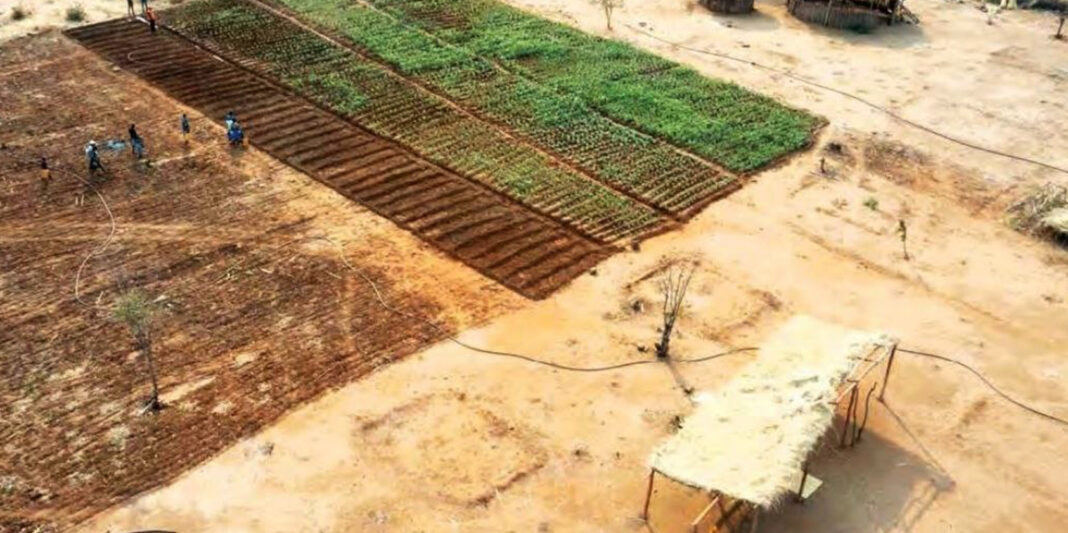Ethiopia is grappling with the worst drought it has experienced in 70 years—an unprecedented climate crisis marked by extreme weather and a deepening food insecurity situation. The country, impacted by five consecutive failed rainy seasons, finds itself at a crossroads, balancing urgent humanitarian needs with a prominent role in continental climate diplomacy.
According to the recent “State of the African Environment 2025” report released in Addis Ababa, the Horn of Africa region, which includes Ethiopia, Somalia, and Kenya, suffered a historic drought in early 2023. This event was the most severe in seven decades, driven by prolonged rainfall deficits exacerbated by a strong El Niño in 2024, which also severely affected southern Africa.
The report, a joint production by New Delhi’s Down to Earth magazine and the Center for Science and the Environment, highlights that the period from 2021 to 2025 is the deadliest in Africa’s recent history regarding climate-related human casualties. Ethiopia has borne a substantial share of this burden, with effects rippling across its population and economy.
The drought’s impact on water availability is acute. Groundwater reserves for emergency use are rapidly depleting, while river flows have dwindled, and agricultural productivity has suffered greatly. Prolonged dry conditions have caused reduced crop yields and lower livestock milk production, particularly in the country’s mountainous regions.
Millions of Ethiopians are confronting dire shortages of food and drinking water. Rising temperatures compound the crisis. An analysis by Climate Central found that between December 2024 and February 2025, Ethiopia experienced 74 days of extremely high average daily temperatures, underscoring the severe influence of climate change.
Food security—a preexisting challenge—has worsened significantly. The World Food Security and Nutrition Report 2025 reveals that a large proportion of Ethiopians lack consistent access to sufficient nutritious food. Alarmingly, 37% of children under five suffered developmental disabilities linked to malnutrition in 2023. The report also warns of shrinking food baskets as African crop systems face unprecedented stress, with sharp declines in production anticipated in the near term.
Ethiopia’s mountainous regions, home to some of Africa’s highest populations outside Asia, face unique yet understudied climate challenges. In January 2025, a study published in Nature Climate Change uncovered a troubling reduction in fog—a vital water source for plants—in ten mountainous African locations, including Ethiopia’s Bale region. Farmers in these areas report worsening conditions: diminished river flows, crop and livestock yield reductions, increased soil erosion, rising plant and animal diseases, and deteriorating human health.
The broader implications for global food systems are dire. A global analysis published in March 2024 in Nature Food warns that nearly half of the world’s crop production in the Northern Hemisphere risks becoming unviable if global temperatures rise beyond 1.5°C, underscoring the urgency to contain climate change.
Despite these immense domestic challenges, Ethiopia is emerging as a leader in global and African climate diplomacy. The country hosted the second African Climate Summit (ACS-2) in Addis Ababa from September 8 to 10, 2025. Themed “Accelerating Global Climate Solutions: Financing for Resilient and Green Development in Africa,” the summit underscored Ethiopia’s dedication to positioning Africa at the forefront of global climate action.
At the summit, African leaders endorsed the Addis Ababa Declaration on Climate Change and Call to Action, reaffirming the continent’s commitment to sustainable development and climate resilience.
A flagship response from Ethiopia is the Green Footprint Initiative—a mass tree-planting campaign that has seen the distribution of over 32 billion seedlings across the country over the past five years. Impressively, the survival rate of these seedlings is approximately 90%, making the initiative a continental model for nature-based solutions and a cornerstone of Ethiopia’s Climate-Resilient Green Economy (CRGE) strategy.
The CRGE initiative is ambitious: it aims for Ethiopia to achieve middle-income status by 2025 while building a green economy and buffering itself from the impacts of climate change. Plans include generating electricity primarily from hydropower, supplemented by wind (20%) and geothermal (10%) renewable sources within the same timeframe.
However, Ethiopia’s environment and economic prospects are closely intertwined with broader regional stability. The World Bank estimates that countries grappling with conflict or instability, including Ethiopia, harbor a disproportionate share of the world’s poorest people and are particularly vulnerable to food insecurity.
Conflict and climate disasters often form a vicious cycle that severely erodes the population’s capacity to survive shocks. The United Nations High Commissioner for Refugees (UNHCR) highlights that three-quarters of the estimated 120 million forcibly displaced globally reside in countries most affected by climate change, Ethiopia among them. While confronting alarming food shortages, escalating displacement, and extreme weather, Ethiopia also demonstrates strong political will and leadership. Its national initiatives and active representation in international climate negotiations showcase a commitment to both mitigating and adapting to climate risks







